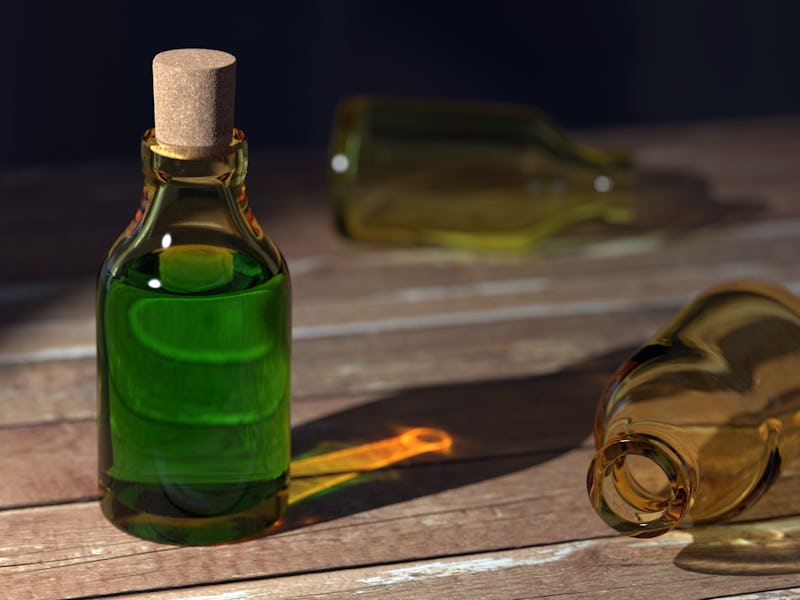Microdosing LSD Is Safer Than Taking Antidepressants, Says Neurobiologist
The latest trend in self-medication might be legally risky but biologically tame.

When Ayelet Waldman embarked on an experiment to relieve her dark moods with the help of tiny doses of LSD, she was understandably hesitant. Trendy though LSD microdosing may be, the drug is a Schedule 1 controlled substance — deemed highly dangerous and of no medical value, and it is associated with many stories of trips gone bad, acid flashbacks, and suspicious suicides.
But Waldman got some surprisingly reassuring advice from David Presti, a professor of neurobiology and expert on the effects of drugs on the brain at the University of California, Berkeley. “I really think there’s something going on with microdosing,” Presti told her. “I think when people do get around to researching it, it’s going to be relatively easy to demonstrate positive effects that are better than conventional antidepressants, which are awful.”
Is microdosing LSD really as safe as, or perhaps even safer than, taking anti-depressants? “Oh absolutely,” Presti said.
Waldman recounts the conversation in her book, A Really Good Day: How Microdosing Made a Mega Difference in My Mood, My Marriage, and My Life, published January 2017 by Penguin Random House.
The problem with prescription antidepressants is “they have all kinds of side effects, and we have no idea, really, what they’re doing,” Presti said. “They cost a lot of money and they’re marketed with all kinds of flimflam.”
What these drugs have on their side that LSD doesn’t are controlled, clinical trials that demonstrate safety and efficacy of the drugs. And yet, the evidence is still quite mixed. Selective serotonin reuptake inhibitors, or SSRIs, simply don’t work for a lot of people with depression, and most users experience negative side effects, some of which can be quite nasty.
Meanwhile, psychedelic drugs are quite safe. We actually don’t know how much LSD it would take to kill a person since no one’s ever taken enough to find out. Bad trips happen — and they can lead to people making dangerous decisions — but they end when the drug’s effects wear off, and the drug itself appears to cause no lasting harm to the mind or body. And the tiny amounts used in microdosing, which are supposedly too small to cause hallucinations or even make you feel high, the risk of negative outcomes might be almost inconsequential.
But do they work? No government-approved study has looked at the effects of microdosing on depression, procrastination, low energy, or any of the other ills it is purported to relieve. And yet, the volume of anecdotal evidence is substantial. James Fadiman and Sophia Korb, researchers with Sofia University, have collected thousands of reports from people who microdose, and they are overwhelmingly positive. A few people have reported to him that they tried it, and it didn’t work or they didn’t like it, and they stopped. But the vast majority report benefits, including surprising and unexpected things, like relief from chronic pain or the physical and emotional symptoms associated with the menstrual cycle.
The largest barrier to research is money. Pharmaceutical companies won’t pay to research drugs they can’t patent, and governments are wary of investing in science on illegal and controversial drugs. Philanthropy and crowdfunding are beginning to step up to fill the gap. A group called Fundamental is currently raising money for several research projects relating to psychedelic medicine, including one led by Amanda Feilding and the Beckley/Imperial Research Programme that might become the first to demonstrate in a controlled way the effects of LSD microdosing on mood and cognition.
Clinical research is expensive and time consuming, but if the early results are even close to as encouraging as the anecdotal reports, momentum will surely build. In the meantime, those curious or desperate enough will continue to find a way to experiment on themselves, Schedule 1 contraband or not.
Editor’s note: Inverse reporter Jacqueline Ronson and renowned microdosing researcher James Fadiman are in the running to host a panel discussion at South by Southwest 2018. To view and vote for their proposal, visit the SXSW PanelPicker.